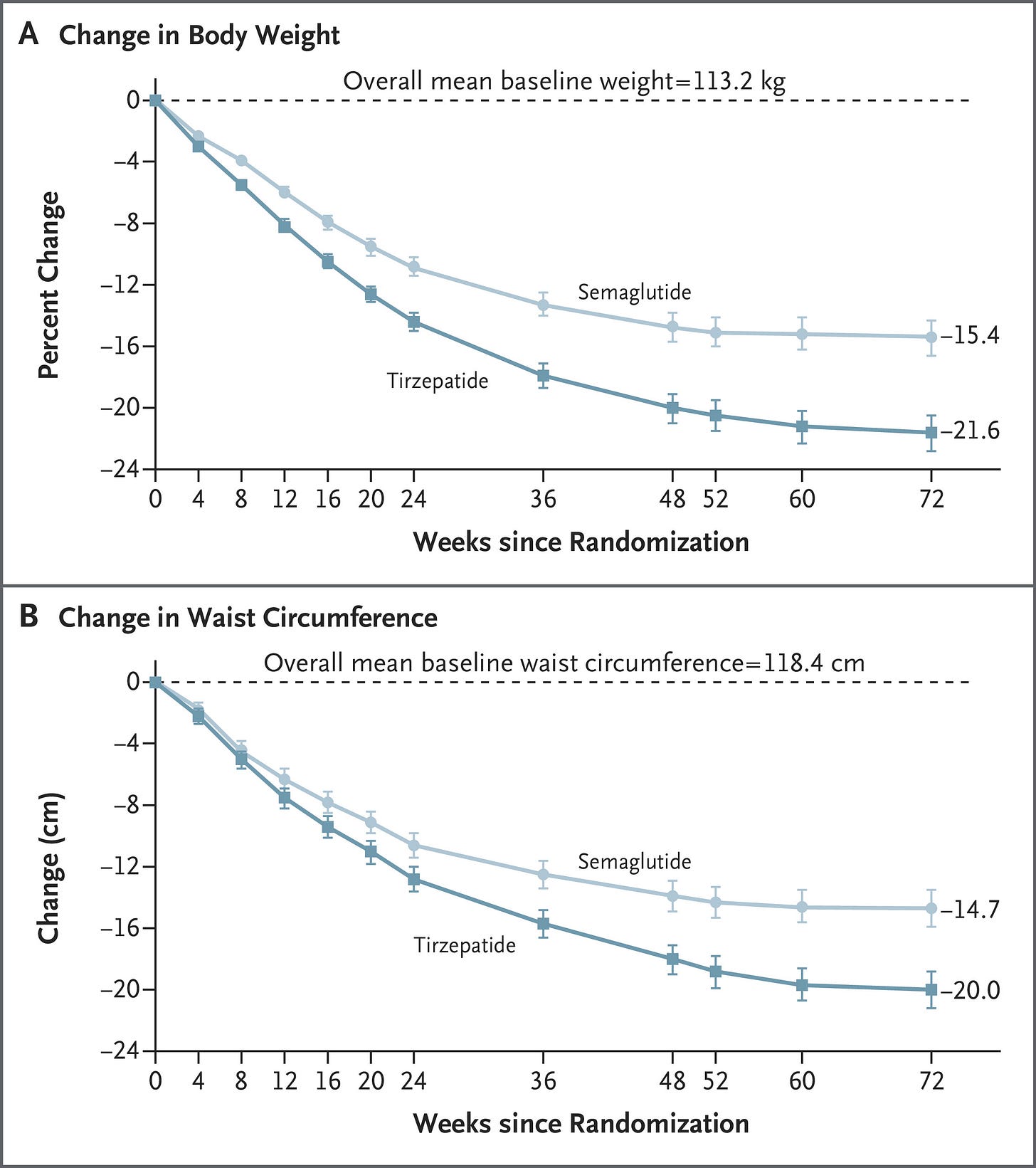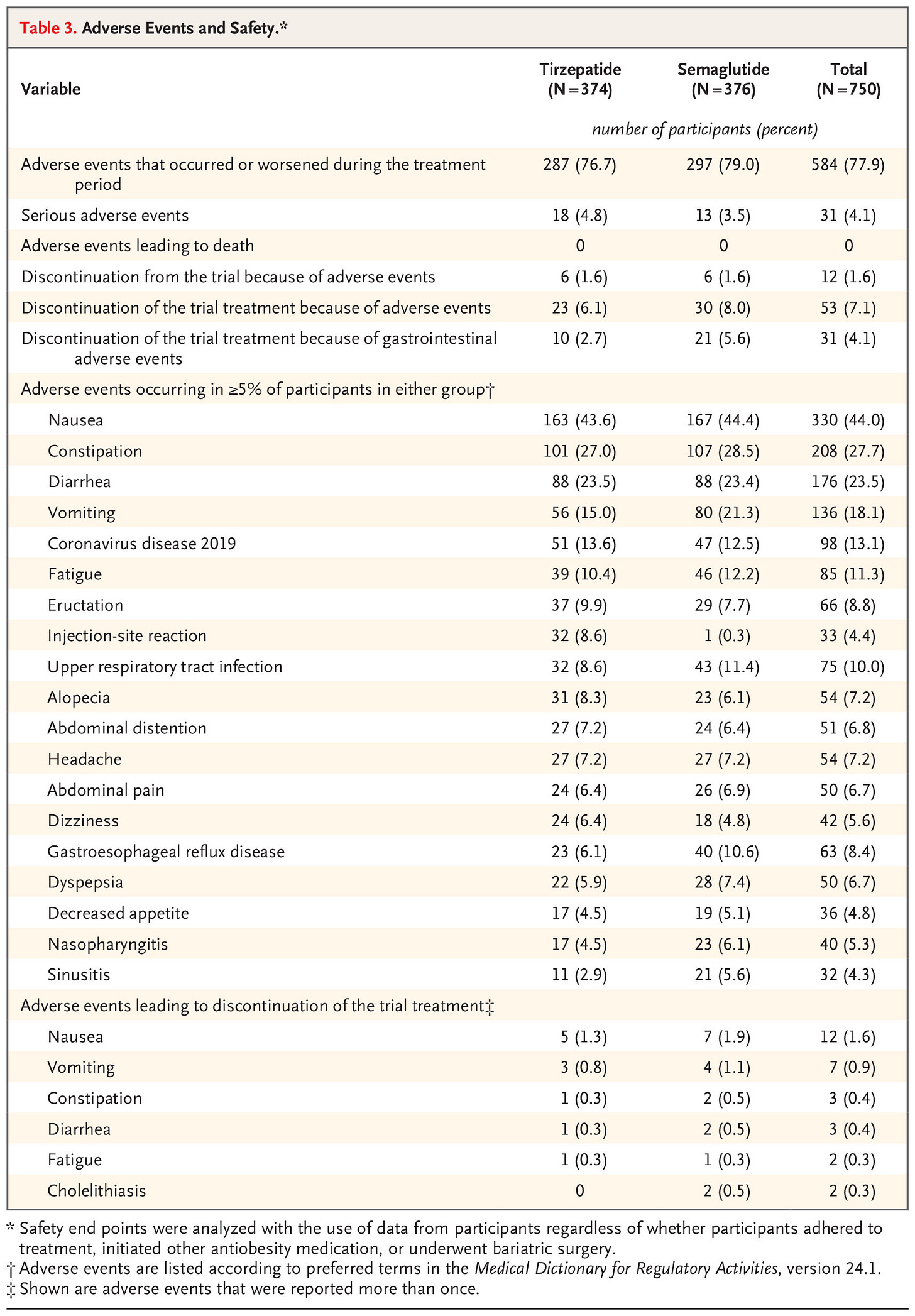47. GLP-1s and Obesity: Redefining the Future of Weight Loss
How GLP1 agonists are shaping the world around us!
The era of weight loss medications is taking shape as we face one of the epidemics of our time: Obesity. As I reflect on weight loss, I have used both Semaglutide and Terzepetide in my medical office, and the results have been remarkable. Most physicians who use these medications witness this paradigm shift in health improvement.
Since the advent of the GLP-1 agonist, Semaglutide, used for diabetes nearly 8 years ago, which has improved blood sugars as patients started losing weight, interest in weight loss drugs has grown exponentially. The needle on the scale has historically only moved in one direction. We are all aware of this trend. Ozempic, which entered the market in 2017, initially made slow progress as it was primarily used to treat diabetes mellitus. However, there were other drugs before Semaglutide, Exenatide, which failed miserably as it was a twice-daily injection with minimal weight loss, but has paved the way to the present Semaglutide.
GLP-1 receptor agonists, such as semaglutide and tirzepatide, are a class of medications originally developed for type 2 diabetes but now widely used for weight management. They work by mimicking the hormone GLP-1 to regulate blood sugar, reduce appetite, and slow gastric emptying, leading to significant weight loss and improved metabolic health.
As a physician who cares for patients with obesity daily, it has been heartening to see the outcomes from these medications. I have had patients who lost more than 10% to 15% of their body weight, and some have lost up to 25%(wow!). This level of weight loss was previously unheard of. I have been practicing medicine for over two decades, and my interest in preventive medicine and obesity has driven me to become board-certified in Obesity Medicine. Numerous studies have shown that obesity is associated with increased morbidity and mortality, along with a higher risk of many cancers and chronic diseases. The obesity epidemic has dramatically changed the landscape in America and around the world.
Lifestyle choices and environmental factors influence this issue. We are currently in an age of overabundance, which has created significant challenges. We are consuming more calories than we burn, resulting in weight gain in the United States. For example, when the milkshake is the amount of calories one needs daily, imagine all the other additional foods we eat throughout the day. Time and again, it has been demonstrated that while the desire to lose weight is present, the body’s hormonal systems resist this change. It holds onto fat due to evolutionary mechanisms developed during periods of prolonged starvation during prehistoric times.
Throughout my career, I have cared for many patients who are morbidly obese. Only approximately 27% of the population in the United States is currently identified as having a normal weight, and the rest are obese and overweight. We tried various medications, including stimulants that are not safe for heart patients, and drugs that inhibit digestion, which caused significant diarrhea and stool incontinence. Antidepressants were also used for weight loss in combination therapy, which has caused some weight loss, but has not achieved what GLP-1 has done.
However, recent developments in GLP-1 medications have changed the landscape of weight management. These drugs help the body enter a fasting mode, which reduces appetite and increases insulin sensitivity, among other hormonal effects. This leads to a decrease in calorie intake and an improvement in energy expenditure, ultimately resulting in weight loss.
Since the introduction of GLP-1 medications, the management of diabetes and obesity has undergone significant improvement, and these medications have become first-line treatments for these conditions. GLP-1s have transformed diabetes management and many related chronic ailments. I have witnessed substantial improvements in my patients' physiology and overall health, leading me to wonder if these could be considered wonder drugs due to their effects on various health parameters, as shown in the video below.
A January 2025 study in Nature Medicine, involving over 2 million people, found that GLP-1 receptor agonists, such as semaglutide and tirzepatide, significantly reduced the risks of conditions including Alzheimer’s, heart disease, delayed kidney disease, and respiratory issues. However, they also increase the risk of side effects such as gastrointestinal problems, low blood pressure, kidney stones, gallstones, and pancreatitis, which are more manageable. These results underscore the importance of personalized use of GLP-1 therapies in the management of obesity.
The SURMOUNT-5 trial, published in The New England Journal of Medicine in May 2025, compared tirzepatide (Zepbound) and semaglutide (Wegovy) in 751 adults with obesity but without type 2 diabetes. Over 72 weeks, tirzepatide led to greater average weight loss (20.2% vs. 13.7%), larger waist circumference reductions (18.4 cm vs. 13.0 cm), and a higher percentage achieving at least 15% weight loss (64.6% vs. 40.1%). Both drugs had similar safety profiles, primarily causing gastrointestinal side effects. Tirzepatide’s superior efficacy is linked to its dual GLP-1/GIP receptor action.
The SELECT trial, published in 2023, was a landmark study involving over 17,000 adults aged 45+ with overweight or obesity and established cardiovascular disease, but without diabetes. It found that weekly semaglutide 2.4 mg (Wegovy) reduced the risk of major adverse cardiovascular events—cardiovascular death, nonfatal heart attack, or stroke—by 20% compared to placebo. These results highlight semaglutide’s dual benefit in weight loss and cardiovascular protection.
The SURMOUNT-MMO trial is a major Phase 3, double-blind, placebo-controlled study evaluating tirzepatide’s impact on long-term morbidity and mortality in over 15,000 adults aged 40+ with obesity (BMI ≥27) but without diabetes. Participants receive tirzepatide or placebo, with the primary endpoint being time to first major cardiovascular event or death. The current trial, spanning about 5 years, also tracks new cases of type 2 diabetes and kidney outcomes, aiming to clarify tirzepatide’s broader health benefits in the obese population.
Millions of prescriptions of GLP1 agoninsts have been given. The side effect profile of these medications, including GI issues, nausea, vomiting, constipation, fatigue, kidney stones, and gall stones, as shown in the picture above. It's important to note that severe complications are rare but present. These medications are also prohibited in patients with medullary cancer of the thyroid. Patients should be mindful of the potential for weight gain upon discontinuation, which is more common with higher doses and sudden disruption. Long term side effects yet need to assessed
These trials and more, are showing us that, limited intake of calories are way to go. In this overabundance and ultra-processed environment, our minds crave things more, leading us to store more energy, making us heavy. I have written about fasting extensively in the previous blog, the science of fasting, in chapter 6. The GLP-1 agonists show promise at the right time to put brakes on our appetite and decrease the palatability of ultra-processed foods. I do think it is a powerful tool in the fight against Obesity. We all struggle with weight loss after a certain age due to physiological changes happening throughout the body. I prefer the term hormonal resistance as the chemical nature of our hormones is getting less reactive due to multiple factors, causing us to behave certainly regarding our weight. Why do I care, and what's in it for me? One needs to understand the pathophysiological ramifications of overindulging as we age and be mindful.
In conclusion, the landscape of obesity treatment is being reshaped, offering hope and practical solutions for many struggling with weight. As more treatments are in the pipeline, the studies show promise not only weight loss but plethora of chronic diseases. For me, it's so gratifying not just to lose weight for my patients but also improving the parameters, thus preventing chronic disease, helping to achieve healthy longevity.
Suman Manchireddy MD
Board Certified in Internal Medicine and Obesity Medicine
Reliant MD Group LLC
Leesburg, VA 20176
Disclaimer: This is for purely informational and educational purposes only. Seek medical advice before starting any testing or treatment regimen. The data presented here has been extensively researched and condensed for a broader audience, and it should be viewed for educational purposes only. The blogger or blog has no affiliation with any pharmaceutical company.
References :
SELECT Trial
SURMOUNT MMO Trial, Clinical Trials.Gov
SURMOUNT-5 Trial, NEJM
"Unlocking the broad health benefits and risks of GLP-1 receptor agonist drugs", published in Nature Medicine in January 2025
CDC





